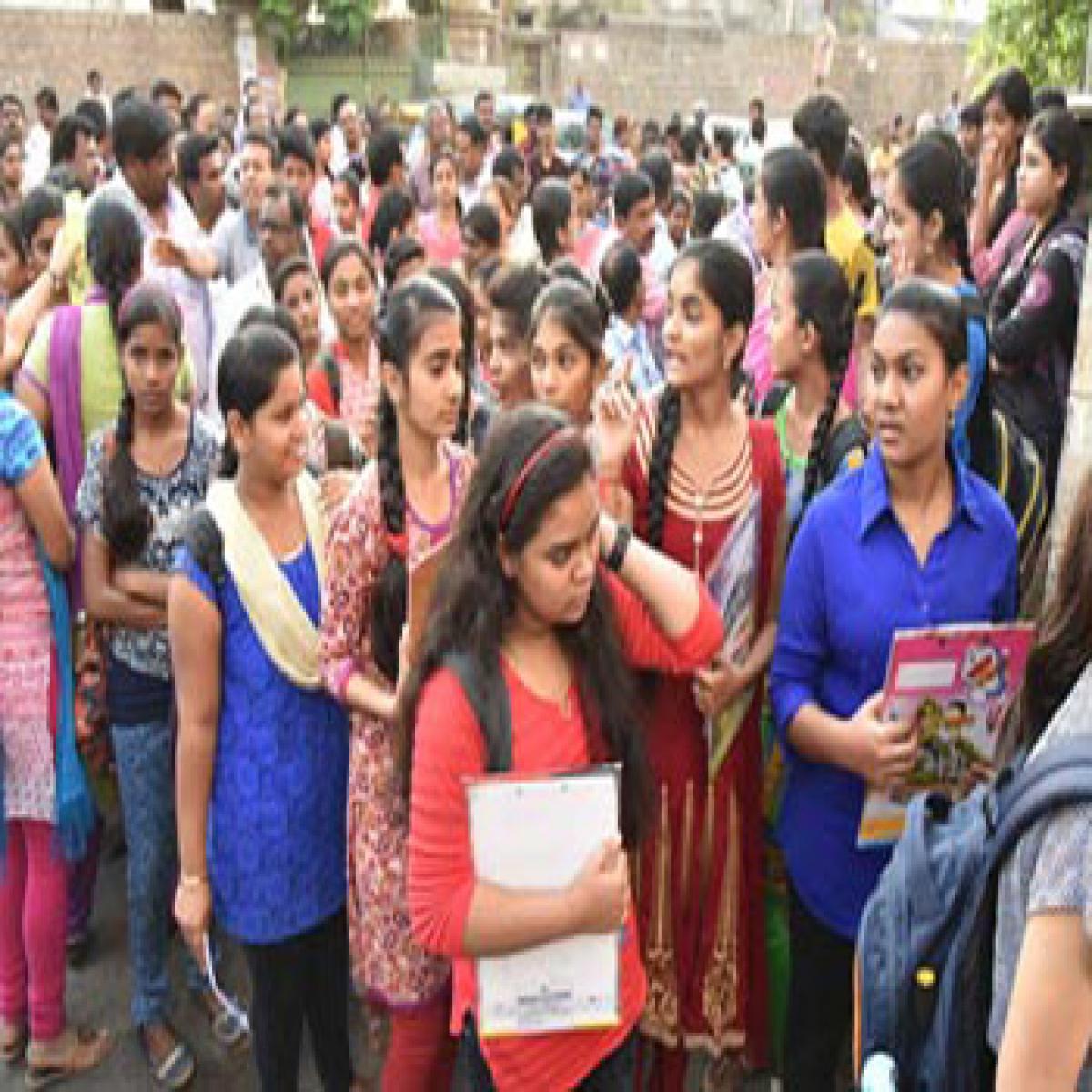Live
- 16 gold medals, 485 degrees awarded to students
- TBS held Karthika Vana Mahotsav
- 135 newborns and 28 mothers die in 7 months
- Garena Free Fire Max Redeem Codes for Today (November 25): Unlock Free Skins, Diamonds & More
- NCC 2nd officer Narendra Babu secures Best Officer award
- Employees warn government to fulfill demands as KSRTC, BMTC gear up for strike
- Jagan took Rs 1,750 cr bribe from Adani: Anam
- Bhumana Abhinay hoists YSRCP flag at Everest base camp
- VHP resolves to oppose Waqf Board’s land claims
- Youth dies by suicide on moving APSRTC bus
Just In

Call it bizarre or whatever, the fact of the matter is that in the entire parliamentary history of India, Women’s Reservation Bill is the only bill that has failed to become an Act despite enjoying a clear-cut majority. The flimsy reasons given by successive governments reveal lack of political will. The patriarchal value system is the only hindrance in achieving political empowerment of women.
Call it bizarre or whatever, the fact of the matter is that in the entire parliamentary history of India, Women’s Reservation Bill is the only bill that has failed to become an Act despite enjoying a clear-cut majority. The flimsy reasons given by successive governments reveal lack of political will. The patriarchal value system is the only hindrance in achieving political empowerment of women.
Democracy is the most representative form of political organisation that is known to mankind. Democracy loses its credibility when women, who constitute nearly half of the population, have only a meagre representation. An enhanced representation will help shift focus towards meaningful human and social development.
It is true that influential people would utilise these reservations at the beginning. But in due course political leadership will emerge. This is also the experience with Scheduled Caste and Scheduled Tribe reservations. On a microscopic look at Indian politics, we would notice distinctly discernible trends. First, women who jumped the bandwagon using family background emerged as powerful entity of their own.
Indira Gandhi was a shining example of such a trend. In fact, there are women political leaders who have grown in their political career without any influential family background like Uma Bharati and Mamata Banerjee. Therefore, it is wrong to oppose women’s reservations on the ground that it will lead to didi-bibi-beti syndrome.
Some political parties are opposing the Bill on the ground that it would benefit upper caste women. Such a possibility cannot be ruled out. However, opposing on this ground is uncalled for. No law is final. Every law evolves over a period of time. Women as social category suffer discrimination, cutting across caste, class and religion.
Suggested alternatives include amending the Proportional Representation Act to mandate every political party to field women in at least one third of the constituencies. In such a case political parties driven by patriarchal values, would field women in the constituencies where they are most likely to lose.
Yet another alternative being suggested is that there shall be dual membership in one third of seats. Apart from a general member, in these one third seats, there will be a women member too. But this is not political empowerment of women as their status will be titular in nature. The real power would only be wielded by the general member.
Reserving one third of seats would mean a substantial increase from the present level of representation and shall be relatively nearer to the women’s share in the population. Any attempt to dilute this proportion is absolutely undemocratic and makes a mockery of gender-equality rhetoric.
The oft quoted argument for not fielding sufficient number of women candidates is the winning prospect. This argument lacks conviction given the fact that women constitute a meagre percentage even in the Rajya Sabha and Legislative Councils.
Flawed arguments and farcical alternatives cannot undermine the legitimacy or the urge to ensure legally mandated representation of women in our legislative bodies. Nor can it be by merely saluting them on International Women’s Day.

© 2024 Hyderabad Media House Limited/The Hans India. All rights reserved. Powered by hocalwire.com







